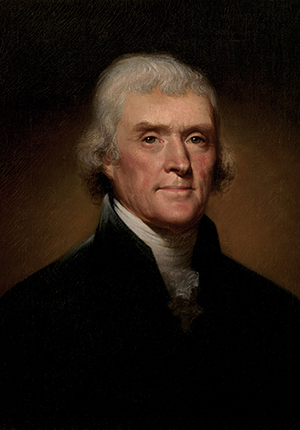Background
In 1777, Thomas Jefferson drafted a bill to establish religious liberty on the basis of the natural, inalienable right to the freedom of conscience. He proposed his bill to the Virginia legislature in 1779, but the legislature did not approve of Jefferson’s bill while he was still Governor. Nearly a decade later, James Madison led the fight in Virginia against a proposed state tax to fund Christian teachers. After Madison successfully rallied opposition to these religious assessments, the Virginia legislature went on pass the Virginia Statute for Religious Freedom in 1786. This excerpt provides Jefferson’s original version of the bill and its inspiring account of the freedom of conscience. Jefferson’s bill sets out four reasons for why government can make no law that constrains our freedom of conscience, opinion, or speech: (1) freedom of conscience is an unalienable right because people can only think for themselves; (2) free speech makes representatives accountable to “We the People”; (3) free speech is necessary for the discovery of truth and the rejection of falsehood; and (4) free speech allows the public discussion necessary for democratic self-government.








